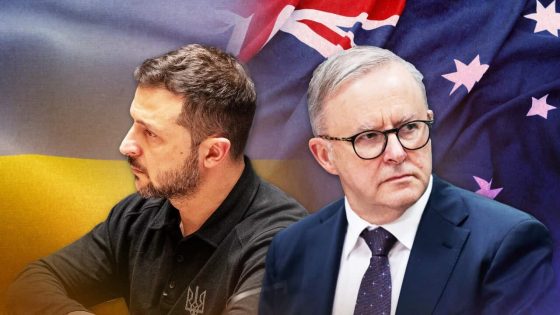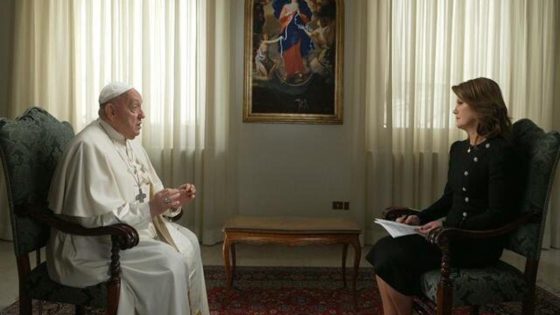Key Points
- A Senate committee has made 22 recommendations to the Australian government on how its aid to Ukraine can be refined.
- The report is based on 230 submissions from the business sector, government and non-government organisations, as well as individuals.
- Key recommendations include stepping up military and humanitarian aid, and taking ‘concrete steps’ to curtail the effects of Russian disinformation.
Two and half years since Russia’s full-scale invasion, Australia continues its military, humanitarian and diplomatic support of Ukraine.
As of September 2024, Australia’s overall contribution to Ukraine has totalled more than $1.3 billion, with the most significant part of those funds allocated to military training and equipment.
In March 2024, the Senate referred an inquiry into Australia’s aid to Ukraine to the Foreign Affairs, Defence and Trade References Committee.
The objective of the inquiry was to “identify ways in which Australia can refine its support and […] support Ukraine to defeat the Russian invasion by working together with allies and international partners”.
The inquiry received 230 submissions from across the public and private sectors, individuals and community organisations. It also held three public hearings — in Canberra and Melbourne.
In September 2024, the committee tabled a report outlining 22 recommendations for the government.
Australia and ‘the distant war’
While the committee was aware of the arguments against Australian involvement, the report stated that the “overwhelming majority of submitters” recognised the need to support Ukraine.
The increasing threat posed to Australia by totalitarian regimes and the threat to stability in the Indo-Pacific region were among the cited reasons.
“[The] Committee’s report confirms the reasons for unreservedly seeking to help Ukraine and makes a series of recommendations aimed around refining Australian support,” it read.
The report stated that the majority of submitters called for the scale and ambition of Australia’s aid to Ukraine to be increased “to better reflect Australia’s position as the 12th largest economy in the world”.
‘Scale and ambition of aid should be increased’
According to the Kiel Institute for the World Economy, Australian aid to Ukraine accounts for less than 0.05 per cent of its GDP. It is currently the fourth biggest non-NATO donor to Ukraine — after Japan, Switzerland and Austria.
The committee recommended that the Australian government step up both its military and humanitarian aid and “commit to a comprehensive package, including multi-year sustainable support”.
It urged the government to provide Ukraine with more new and retired military equipment.
Earlier this year, Australia refused Ukraine’s request to donate its retired fleet of Taipan helicopters. Citing security concerns, the Australian government dismantled the equipment and buried it.
Outlining some of these “missed opportunities”, the committee recommended adopting “a default position” that such material will be “gifted to Ukraine unless there is a compelling case against this for an individual asset”.
According to the Kiel Institute for the World Economy, Australian aid to Ukraine accounts for less than 0.05 per cent of its GDP. It is the fourth biggest non-NATO donor to Ukraine, after Japan, Switzerland and Austria.
It added that the government should “expediently” respond to “requests from the Ukrainian government for specific military and defence equipment and material” and acknowledge that the Ukrainian authorities are “best placed to decide whether the equipment can be used effectively”.
The committee also found that the Australian government should support lifting restrictions on Ukraine’s ability to strike military targets in Russia.
Aid should be better coordinated
The committee found that there was no documented plan or strategic approach to Australia’s aid for Ukraine.
The witnesses from the Department of Prime Minister and Cabinet admitted at the hearing that the Australian government did not have a consolidated list of decisions.
It was also acknowledged that the departments were “reacting” when the government “chose to make an announcement” regarding a new aid package and there was “a series of individual decisions taken from time to time”.
The report recommended establishing a centralised system to streamline Australia’s aid and re-opening the Australian embassy in Kyiv.
It cited the example of an Australian volunteer firefighter who had approached the Association of Ukrainians in Victoria.
He had developed respiratory protection masks and wanted to donate them to Ukrainian troops, who were often wearing bandanas. However, as the submission explained, he struggled to find a point of contact in the federal government.
The committee recommended that the Australian government appoint a Coordinator-General who would be the key point of contact and lead the coordination between the government agencies.
Oil products from Russian crude ‘of specific concern’
Applying economic and political pressure on Russia is one of the ways to support Ukraine, the committee stated in its report.
According to the Helsinki-based Centre for Research on Energy and Clean Air, Australia is among the countries that continue to import oil products derived from Russian crude in third countries.
According to the think-tank, in the first half of 2024, Australia imported more than 1.4 million tonnes of refined oil products from at least three refineries in India and China that use Russian crude.
The Senate committee questioned the Department of Foreign Affairs and Trade (DFAT) on whether the government was reconsidering its approach to sanctions, “noting that Russia has been able to put $13.6 billion towards its war efforts on the back of oil exports”.
In its response, DFAT did not specifically address the issue of refined Russian oil, but stated that Australia’s sanctions were “under regular review”.
The report recommended that the Australian government improve tracking of petroleum-based products made with Russian crude and apply autonomous sanctions as required.
It also recommended that the Australian government should “publicly attribute the role that China, Iran and North Korea are playing in supporting Russia in its invasion of Ukraine”.
Frozen Russian assets
The committee heard that transferring Russian frozen assets to Ukraine would be another way to help Ukraine with no direct cost to Australian tax payers.
The report cited the submission by Jon Richardson, visiting fellow at the Australian National University Centre for European Studies. According to Richardson, “an estimated $9 billion in Russian assets are frozen in Australia”.
Business NSW, in their submission, emphasised that these assets should go towards areas of urgent need identified by the Ukrainian government.
The committee recommended in its report that the Australian government should identify the assets that are subject to sanctions and “assess legislative changes” that are required to transfer these assets to Ukraine.
Russian propaganda and foreign interference
The committee pointed out the role the Australian government plays in countering disinformation around the war in Ukraine.
It referred to several submissions discussing the growing issue of Russian propaganda and the effect it has on the public.
The report cited the submission by Professor Peter Dean, Director of Foreign Policy and Defence at the United States Studies Centre, who described Russian propaganda in Australia as an “attempt to undermine community support for aid to Ukraine with false narratives about the cause of the war”.
It also cited the submission by Kateryna Argyrou, co-chair of the Australian Federation of Ukrainian Organisations, who said Russian propaganda in Australia was “in overdrive”.
Several submissions discussed the presence of Telegram channels, run by supporters of Russia based in Australia, that were spreading Russian propaganda. According to the committee, the reporting of these channels to the authorities was “falling on deaf ears”.
When questioned by the committee, a Department of Home Affairs representative said it was aware of “a range of different misinformation campaigns” and that it was coordinating across all national intelligence agencies to counter those activities.
“It is clear that Russia is not being held to account for its dissemination of propaganda,” the report concluded.
“The committee is of the view that the Australian government must take concrete steps to curtail the effects of disinformation on public debate on the conflict.”




